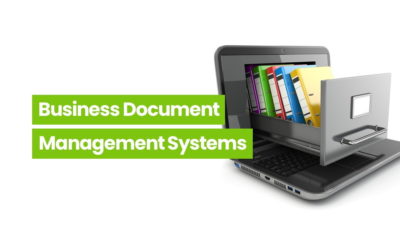Trying to find a good (and trustworthy) financial adviser can be overwhelming.
Many of us don’t know what we are looking for, what makes a good financial adviser, or what financial advisers really do. For many people, simply typing “independent financial adviser near me” into a search engine is the first place to start.
If you are looking for a bit more help on how to begin working with a financial adviser, this guide will give you an overview of what you need to know to take control of your financial future with confidence.
Selecting the correct financial adviser for you will help ease any money worries, they should be able to explain your financial situation, and provide you with the key to a better future. Working with a financial adviser should be rewarding, and you should enjoy the process – especially when you save more money!
What does a financial adviser actually do?
It may sound obvious, but a financial adviser (also referred to as a “financial advisor” or “financial planner”) provides advice and an expert opinion on money and finances. A financial adviser uses their expert knowledge to help you make the right choice about your money.
A good financial adviser will sit down with you and discuss your current situation, assets, debt, goals, retirement plan and your outgoing expenses. They will help you make a plan that means you can access money when you need to, save for the future, invest for your children or start/grow a pension.
Financial advisors spend their days ensuring they are up to date with financial regulations, your personal financial accounts, understanding how tax changes may impact you, and looking at ways to make your money work hard.
Understanding what is a good investment, where to invest, how much, and what to save is complicated. Financial advisers are the experts who understand the rules and the risks and can help you decide what to do with your money.
How can a financial adviser help me?
Understanding the financial landscape is complicated for most people. One of the jobs of a financial advisor is to explain the ins and outs in a way that makes sense for you.
If you don’t know what you want to do with your money and want to do more than leave it in a bank account, you need to find an experienced financial adviser. A financial adviser can also help you to make smart money decisions while keeping you on the right side of laws and regulations.
They can help you navigate the various investment application forms and they will create a personalised financial plan to allow you to breathe easily. Money worries affect everyone, no matter how much or how little you have.
Financial advisers can help you see where you can save, where you are paying too much tax, how to legally minimise your tax payments, and how to invest for a healthier financial future.
Their main job is to reduce your financial restrictions and help you plan for a better future!
Will a financial advisor make me money?
The main goal of a financial adviser “is to make you money”. But they also do so much more than that.
Then they can help you come up with a plan so that money isn’t a worry. Sometimes, this means investing money to make money. Other times this could mean restructuring debt, creating a savings plan, or reorganising assets to minimise tax.
It’s important to understand that “making money” often involves many complicated steps, and a financial adviser will make this process straightforward.
So, in the long run, yes, they can make you money. But they can also save you money, and importantly, they will create a realistic plan for you to reach your financial goals.
How much does it cost to have a financial adviser?
One question people often ask is, “is a financial adviser worth it?”
This is an understandable question – the idea that you pay someone else to make you money seems a little strange.
Financial advisor costs vary depending on how much work they have to do to help you make money. Different financial advisers will also charge using different methods.
Generally, the most expensive fee is an annual fee, otherwise called a retainer.
This means your financial adviser will be willing to work for you, on whatever you need, at any time. If you plan to shift your money regularly, want access to different investments, and require regular reports – having a financial adviser on retainer is probably the cheapest option.
Other independent financial experts will charge by the hour or by a specific plan. Your adviser will be able to show you the likely costs upfront, especially if they have a set plan for investing or saving money. in this scenario, they should know what they are doing and are unlikely to overcharge you.
Another standard method of payment, is to charge as a percentage of your overall account value. This means that if you have less to invest, you will pay less. This amount can range from as low as 0.25% of your account balance to 1%. This method is also called assets under management or AUM.
There are some financial advisers who offer a free service.
This usually means they make their money by investing with specific banks or investment companies. It can be tempting to opt for a free service, but these advisers may not invest with your best interest in mind; they will simply invest where they get paid. So although you won’t pay them anything, it’s possible that your that amount of money you make or save won’t grow either.
The important thing to know, is that some financial institutions won’t charge you if they lose your money.
Remember that financial advising is a business, so advisors want your money to do well, and they want to reinvest your money. It’s in their interest that you are happy with their service so they won’t overcharge.
Independent Financial Advisors Nearby
Firstly, you don’t need to pick an independent finance advisor near you, but it helps.
A proper relationship based on trust is essential when it comes to handling your money. If you can spend time with your adviser, they can get a better understanding of your needs. It’s also much easier to pop in to a sign a document or discuss changes to your financial plan in person.
Secondly , financial advisers have lots of different specialisms.
Some specialise in pensions and retirement, others in savings and investments. A quick internet search for “independent pension adviser near me” will probably give different results to a search for “investment IFA near me.”
It’s worth doing some research and thinking about what financial help you want. Get in contact with a few advisors to ask questions! If you are wanting some free financial advisor quotes, please use our free service on this page.
With that in mind, here are our top 10 questions to ask a financial advisor…
Top 10 Questions To Ask A Financial Adviser
1. Are you a fiduciary 100% of the time?
Fiduciary financial advisors have to invest in a way that benefits you. They legally have to put your interests first. This means they won’t invest in a way that benefits them, and they cannot invest your money in return for a commission.
2. Can I access my money?
Before you commit to investing, you need to discuss how and when you can access money. If you want to have access to some funds, your financial adviser may have to invest differently. You should also ask about the costs of accessing cash as you may be charged to take money out.
3. How do you make your money?
It’s a good idea to ask how your financial adviser gets paid, so you know what you are paying for and what you aren’t. You may want to think about the difference if you pay your advisor by the hour, compared to paying a flat fee.
4. What are the “all in” costs?
Aside from the cost of paying your financial adviser, you need to know about other expenses you might face. This might include potential tax charges. You don’t want to be hit with a massive fee later on that wipes out half of your savings. Check at the beginning, what you will have to pay and to whom.
5. If I lose money, will I still have to pay your fees?
Some financial advisers have a guarantee that if they lose your money on a bad investment (which is unlikely), then you won’t have to pay any of their fees, or they will reimburse any fees you have already paid. This type of guarantee is excellent, you have the piece of mind that your advisor really is looking to invest your money well, or else they won’t get paid.
6. What is your feedback/reporting process?
You will want to know how often and when your adviser will communicate with you. Will they give your quarterly reports and an annual report? Will they check in with you once a month? Can you have in-person meetings? Will they email you up-to-date accounts? Will they communicate investment benchmarks and failures? You will want to keep an eye on your money, and you need to know how they will be doing the same.
7. Can I have a list of all the services you provide?
You might think you are getting the total package from an advisor, but some financial advisers don’t offer specific services. You don’t want to find out at a later date that your financial expert “is only a consultant” and they don’t handle any money transactions. You also don’t want to find out they don’t cover inheritance tax or foreign tax. If you’re unsure, ask for a list of services they DON’T offer when you first start talking to them.
8. What are your qualifications/experience?
Lots of financial experts have a list of letters after their names or a string of qualifications. Ask for a breakdown to be sure that they have real, genuine qualifications. You can even take the list away and do your own research to ensure they are properly registered. You should also ask about their experience and the success stories for others who are similar to you.
9. Do you have a specialist area?
Some financial experts specialise in pensions and retirements, others specialise in long-term investment, others in debt management or tax planning. Depending on what you want, ask your adviser what areas they specialise in. You can also ask if they specialise in particular types of clients. Some financial experts work with doctors and medical professionals, others work with teachers. Some may even select clients based on age. It’s worth knowing this at the beginning.
10. What is your investment philosophy?
It might sound contradictory, but investing is very creative. There are many different approaches and methods to investing money, and you need to make sure that you and your advisor are on the same page. Ask about what they typically do for their clients, how they choose to invest, what they don’t like doing because they don’t think it’s worth it. You’ll get a picture of their style, and this way, you can build a portfolio you are both happy with and won’t waste time arguing or stressing.
Finally, Are Financial Advisers Worth It?
Honestly, yes. You’ve probably heard the old phrase “money makes money”. It’s true.
Paying for financial advice is an extra expense. But they could help double or triple your account balance. If you want long-term financial security, financial advisers are worth it.
Working with a financial adviser doesn’t have to be stressful. If you know what to ask and take the time to develop a good working relationship, getting an expert to help handle your finances could be the best thing you ever do.
If you would like a free quote for a financial adviser near you, please use our free service. Just answer a few questions to let them know what you need help with, and they will provide free quotes.
Are you ready to hire a financial advisor? – if you don’t know, then our “When should you hire a financial adviser” guide will help. It’s worth a read.



